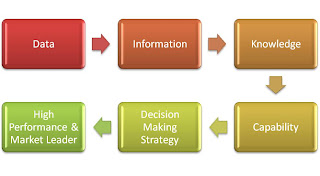It was the year 1970’s, the nascent stages of IT revolution across the globe and especially in India. The mainframe monopoly had just ended and broken with robust online transaction processing available on super mini computers running multi-executive kind of operation system. The PC revolution had just begun with word processors and spread sheets available on inexpensive computers. Therefore, it was known to the world, the demand for software applications would explode and there would be opportunities for companies specializing in customized software development from a country like India. Then in 1999, the “Y2K” fear gripped the U.S. Y2K refers to the year 2000, and the concern was that much of the existing software stores information on year using only two digits; 97 instead of 1997. The fear was that when a program advanced from December 31, 1999 to January 1, 2000, it would behave as if the year was actually 1900, potentially disrupting a huge amount of business and scientific ...


